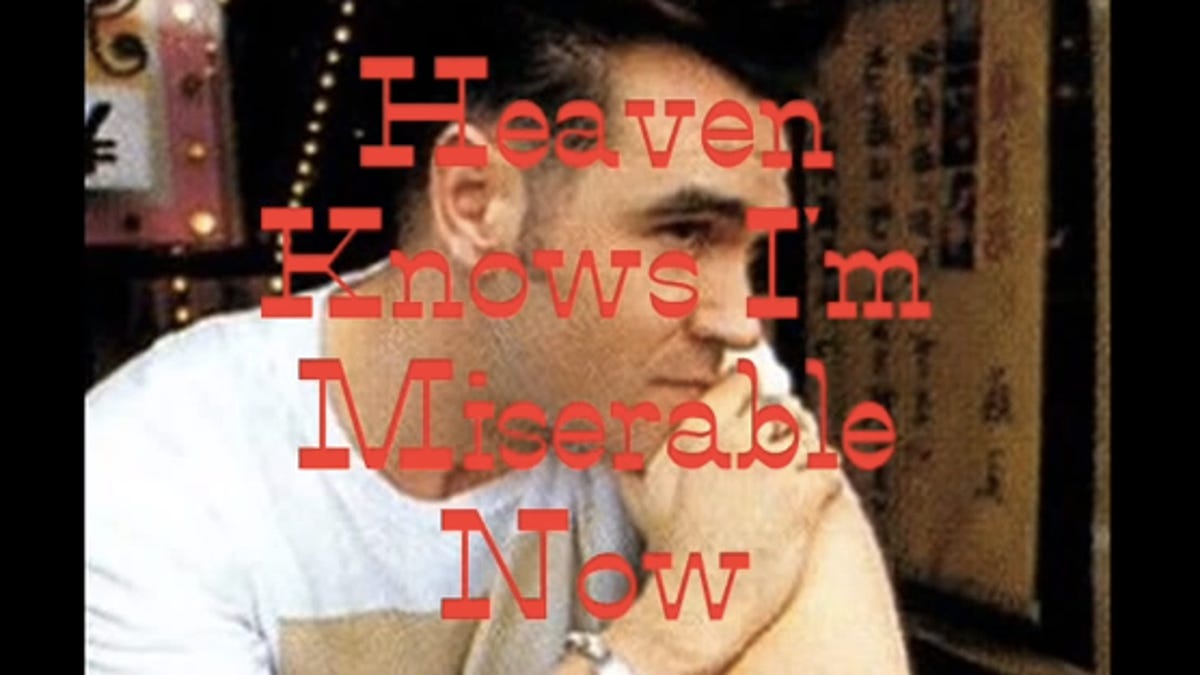The more you use Facebook, the more miserable you get -- study
A disturbing piece of research from the University of Michigan intimates that increasing use of Facebook among young adults creates an increased lack of well-being. Oh.

I have always found people from the University of Michigan to be rather full of themselves and devoid of wit and dress sense.
I don't pretend for a moment that this discovery holds any universal truth. I might have encountered only two or three of these people at the most.
However, I wonder how you will respond to a piece of research from that same university that suggests Facebook and happiness may be virtual opposites.
I am miserably indebted to CBS Philadelphia for noticing this study and its implications.
The study has a portentous title: "Facebook Use Predicts Declines in Subjective Well-Being in Young Adults."
It offers some even more portentous sentences. For example: "The more people used Facebook at one time point, the worse they felt the next time we text-messaged them; the more they used Facebook over two weeks, the more their life satisfaction levels declined over time."
This study was performed among 82 young adults, whose emotions are, surely, as consistent as the British weather.
Still, these researchers believe that their methods offered a disturbing indicator.
Here's another sentence that strikes fiercely into the caring world of sharing: "On the surface, Facebook provides an invaluable resource for fulfilling the basic human need for social connection. Rather than enhancing well-being, however, these findings suggest that Facebook may undermine it."
Amateur psychologists -- I believe they're called life coaches these days -- will say that those who used Facebook for long periods are seeking some sort of relief from misery in the first place.
When they see that everyone else is having far more fun than they are, they get even more miserable.
The researchers resisted this hypothesis. They saw no evidence that people turned to Facebook as a pick-me-up. (Young adults normally turn to beer or drugs, don't they?)
As with so much (all) research, it would take a much larger sample to see if these results could be replicated and, ultimately, understood.
One hypothesis, though, immediately comes to mind: Somewhere deep inside, people on Facebook wish they were doing something more enjoyable. Yes, even with someone else.
Indeed, one observation here was that those who had regularly seen people during the study -- you know, in real life -- experienced greater misery from prolonged Facebook use.
Kids, your parents will always tell you that money doesn't make you happy. It seems that Facebook won't make you happy either.
The Smiths should immediately get back in the studio to record this:
I just spent 10 hours on Facebook.
Heaven knows I'm miserable now.

